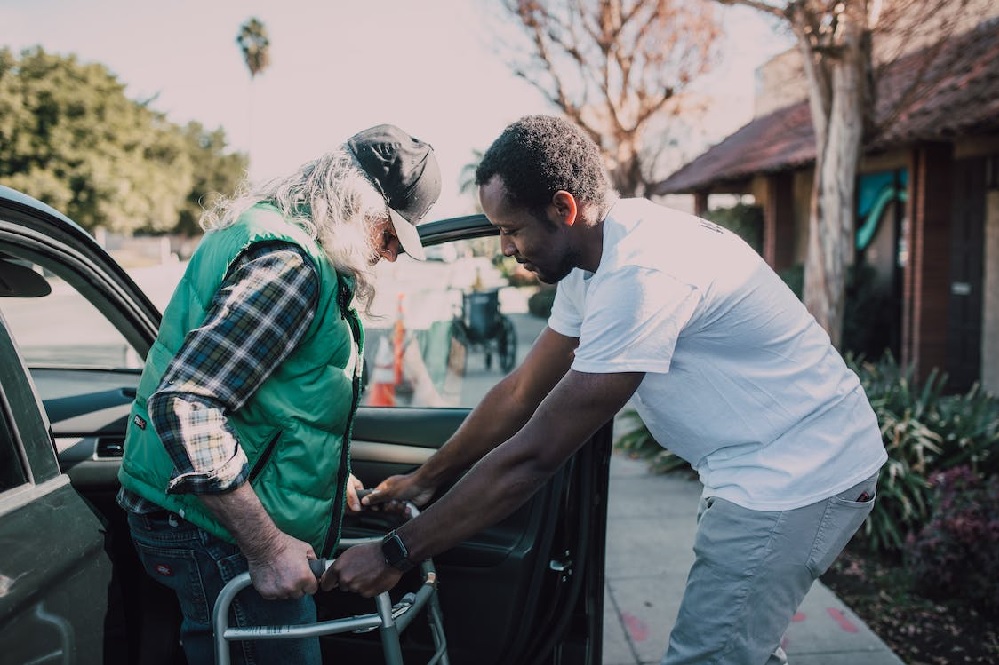Service to Man is Service to God: The Noble Virtue
The phrase “Service to Man is Service to God” encapsulates a profound truth that transcends religious boundaries and resonates across cultures. The essence of this concept lies in the selfless act of helping and serving fellow human beings, which is often regarded as an act of devotion to a higher purpose. This essay explores the significance of this noble virtue, its historical roots, and the impact it can have on individuals and society.
Historical and Cultural Roots: The idea of serving others as a form of devotion is deeply embedded in various religious and philosophical teachings. In Hinduism, the concept of “Seva” emphasizes selfless service to others as a means of spiritual growth and expression of gratitude towards the divine. Similarly, Christianity preaches the importance of loving one’s neighbors and serving those in need as a reflection of one’s love for God.
Selflessness and Empathy: Service to humanity involves setting aside personal desires and ego to address the needs of others. This act of selflessness reflects empathy and compassion, two qualities that foster a sense of connection and unity among individuals. By putting others’ well-being above personal gain, individuals contribute to the betterment of society as a whole.
Creating Positive Impact: Acts of service can bring about transformative changes in society. Whether it’s volunteering at a local shelter, providing medical assistance, or educating underprivileged children, each act contributes to addressing societal challenges. These collective efforts lead to the upliftment of marginalized communities, reduction of poverty, and overall improvement in quality of life.
Promoting Equality: Service to man is service to God and promotes the idea of equality and inclusivity. It encourages individuals to treat every human being with respect and dignity, regardless of their social or economic background. By serving others without discrimination, individuals contribute to building a more harmonious and just society.
Personal Growth and Fulfillment: Engaging in acts of service not only benefits society but also enriches the individual’s life. The satisfaction and fulfillment derived from helping others can lead to a deeper sense of purpose and happiness. Additionally, engaging in service activities can help individuals develop new skills, broaden their perspectives, and cultivate a sense of gratitude for their own blessings.
Inspiration for Others: Acts of service have a ripple effect, inspiring others to follow suit. When individuals witness the positive impact of selfless actions, they are more likely to be motivated to contribute in their own ways. This creates a cycle of kindness and generosity that spreads throughout communities.
Educational Institutions and Service: Many educational institutions emphasize the importance of service as a part of their curriculum. Through initiatives like community service projects, students learn the value of giving back to society. These experiences instill in them a sense of responsibility and the understanding that their actions can contribute to a better world.
Challenges and Overcoming Barriers: While the concept of service to man is service to God is noble, there can be challenges in its implementation. Time constraints, personal commitments, and misconceptions about the impact of individual efforts can discourage people from actively engaging in service. Overcoming these barriers requires a shift in mindset, understanding that even small acts of kindness can make a significant difference.
Conclusion: Service to man is service to God and embodies the essence of selflessness, empathy, and unity. It transcends religious and cultural boundaries, reminding us of our shared humanity. Embracing this virtue fosters positive change in society, promotes equality, and enriches the lives of both individuals and those they serve. As we navigate the complexities of the modern world, the timeless wisdom of this concept continues to guide us toward a more compassionate and harmonious existence.

